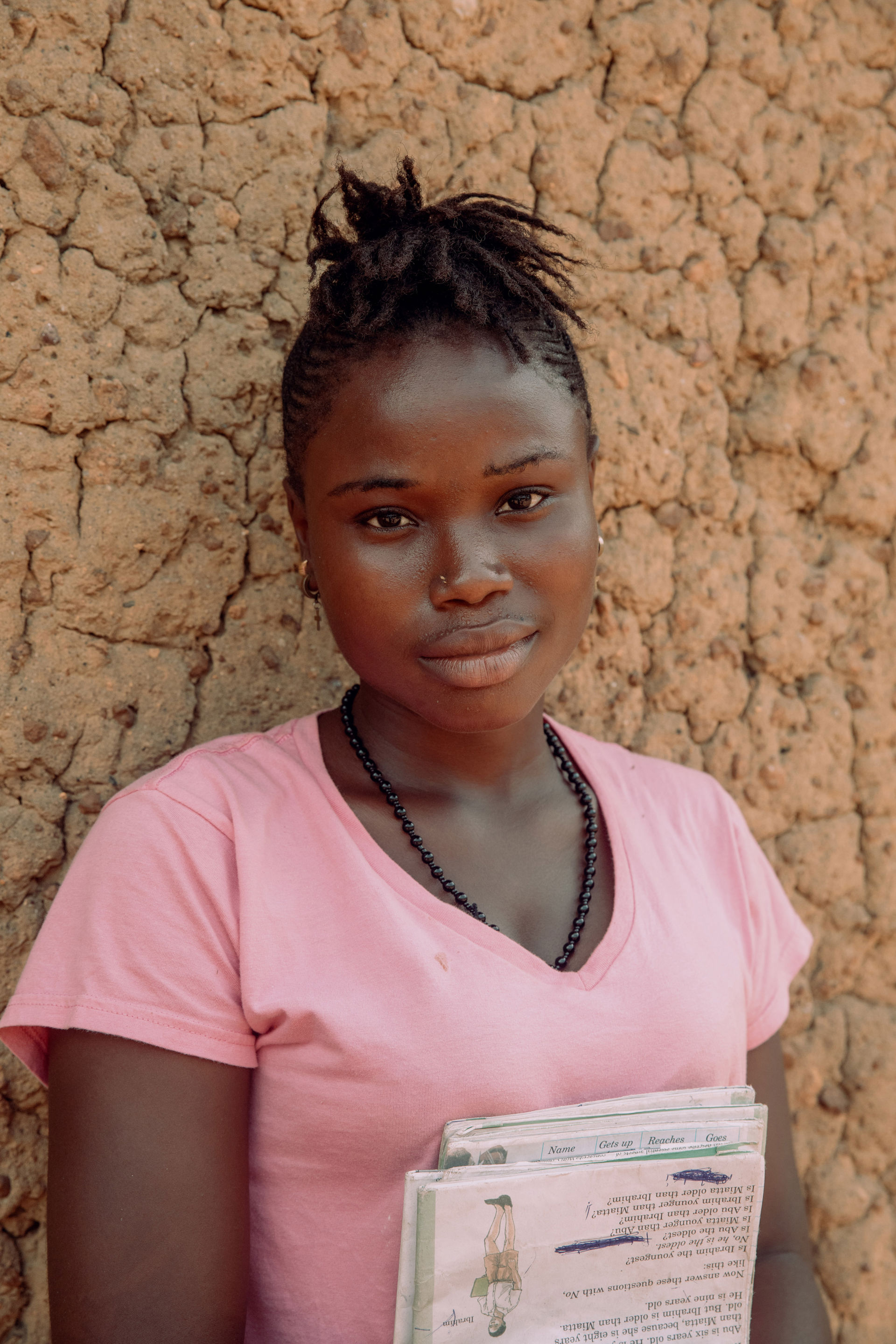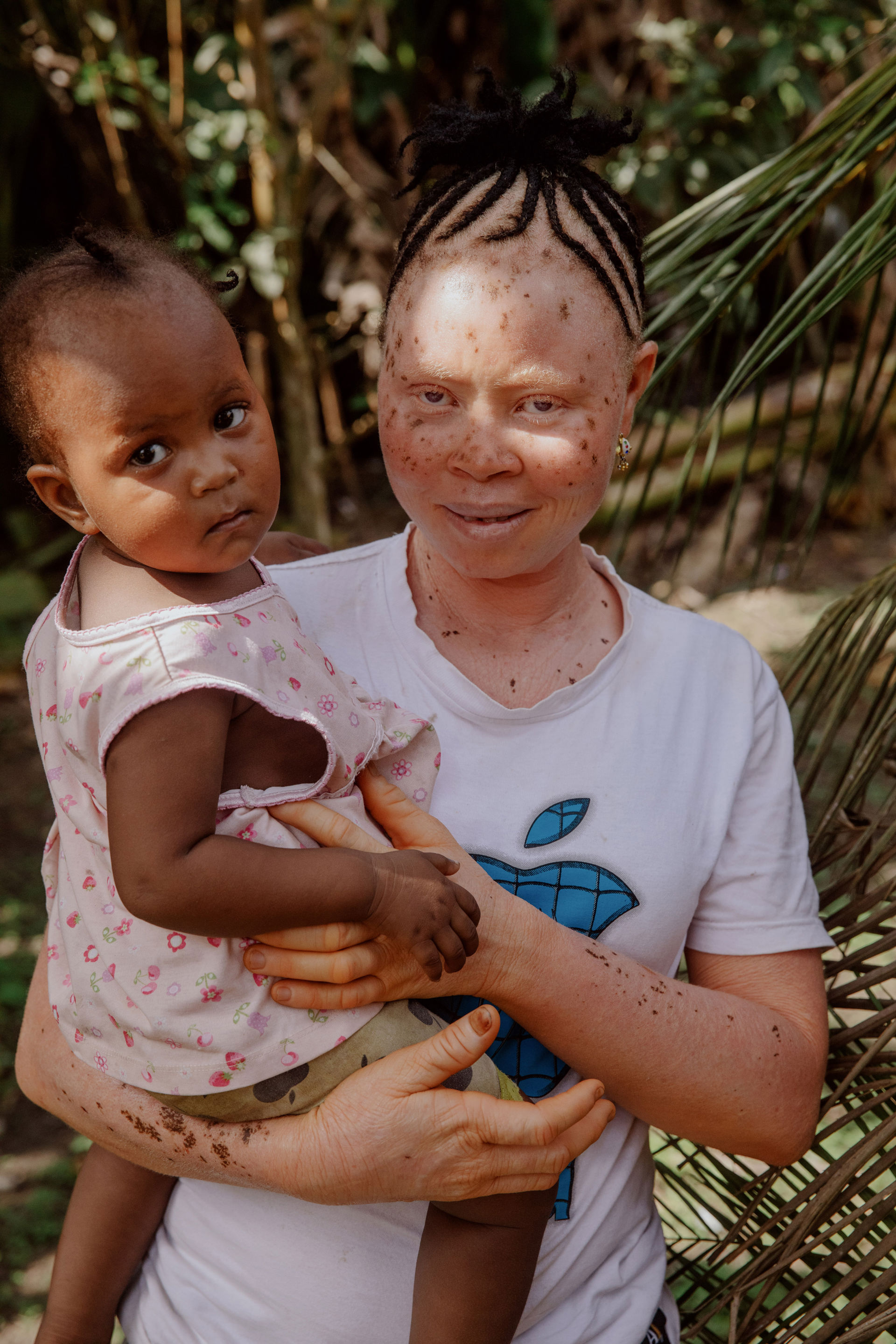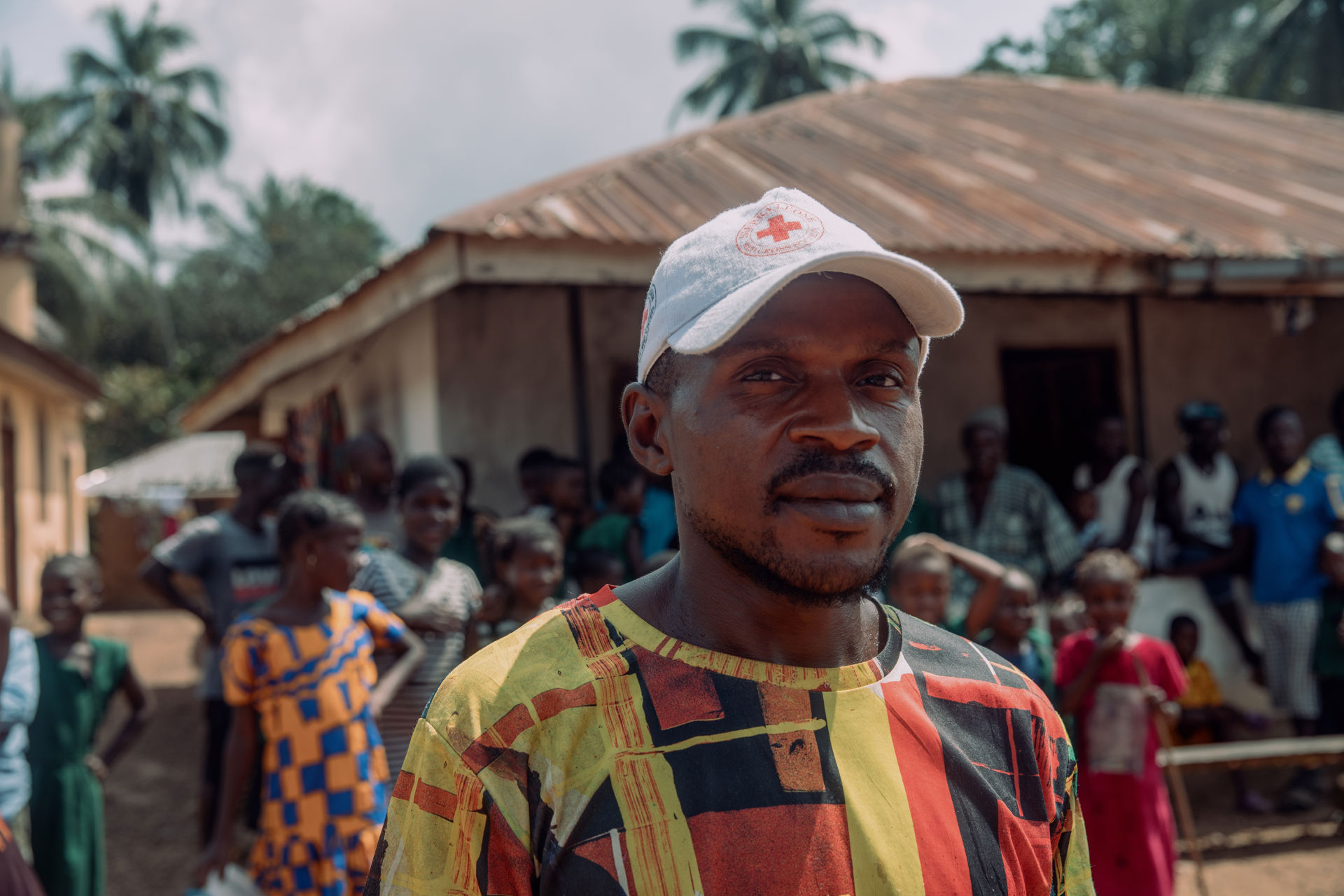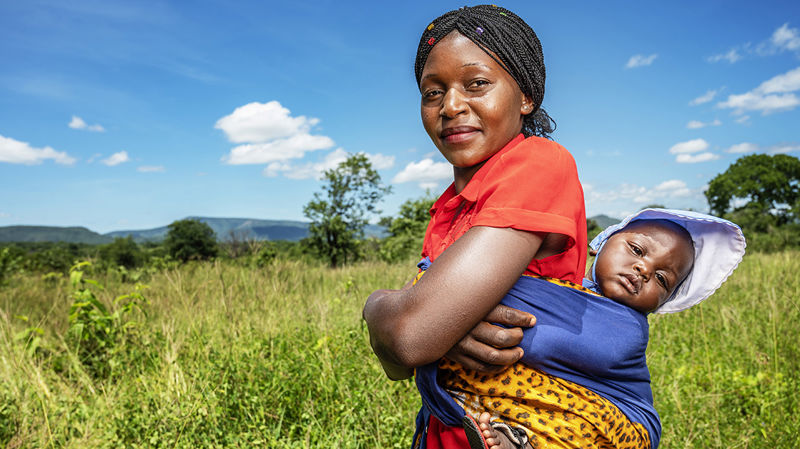Returning to the path of learning with a small loan in Sierra Leone
We strengthen the position of women in Sierra Leone by educating communities on women’s rights and offering small loans that enable girls to continue their studies.
We work together with the Icelandic and Sierra Leone Red Cross societies in six districts in order to, for example, improve sexual and reproductive health and the standing of women and girls. Additionally, we have built and renovated wells and trained communities.
One important part of the project is formed by small loans aimed at women. Sierra Leone, which is recovering from a long civil war and cholera and Ebola virus epidemics, is one of the poorest countries in the world.
The pregnancy and child mortality rates are among the highest in the world, and child marriages and teenage pregnancies are alarmingly common. More than one in five girls in Sierra Leone become pregnant at the age of 15–19.
Young mothers focus on the future
In Bo District, many young women have become mothers at a very early age. One of them is 17-year-old Magdaline. She says she grew up in a five-child family in which the parents earned a livelihood by farming rice and cassava, also known as manioc. The family’s money was tight, and the parents could not provide lunch for their daughter to take to school.
“I was always very hungry. There was a boy at school who began to help me and bring me food,” Magdaline says solemnly.
“First we became friends, then he started getting interested in me. He suggested that I would marry him.”
Magdaline was 14 when she noticed that she was pregnant. Upon hearing of the matter, the child’s father fled from the home village and has had no contact with Magdaline ever since.
The pregnancy and motherhood forced Magdaline to drop out of school.
“It was a very lonely time, and I struggled with taking care of the baby,” she recalls.
When the Red Cross project in Magdaline’s home village began, she registered immediately. A young women’s group was established in the village, which was able to take part in training courses and began to engage in business with the help of a small loan. The women started travelling to the city and other villages to purchase foodstuffs, such as rice and fish, and sell them to the residents of their own village.
I hope that my daughter, too, will eventually be able to go to school, and the best way to ensure this is to study now myself.
“The yields are returned to the group and used to make acquisitions. I decided to buy myself shoes, a school bag and textbooks to be able to return to my studies,” Magdaline says.
Magdaline has moved in with her grandmother. For school days, she leaves her daughter in the care of the grandmother and focuses fully on her studies. She is aiming high.
“I want to qualify as a nurse so that I can take care of my parents. I hope that my daughter, too, will eventually be able to go to school, and the best way to make sure of this is to invest in my own studies how,” Magdaline says with a glimmer of joy in her eyes.
Through our project, Magdaline has also received education about sexual and reproductive health.
“Thanks to the education, I know more about things. I believe that, without the education, I would already have a second child.”

Communal integration through increased awareness
17-year-old Christiana is also involved in the women’s group’s activities to sell food to the villagers. The work is important to Christiana, because she cannot take part in farming with her family.
Christiana has albinism, a genetic disorder that makes her eyes and skin sensitive to strong sunlight. As a result, Christiana takes part in the buying and selling activities either very early in the morning or after sunset.
Now, she spends time sitting under a canopy chatting cheerfully with other girls, but this was not always the case.
“Before, I used to spend most of my time alone at home,” Christiana says.
“If I went to the river to get water, for example, the rest of the villagers were afraid to go there after me. They were afraid of contracting albinism.”
“So, I shut myself away in my home. I did attend school, but I was bullied there, too.”
According to Christiana, the situation has improved dramatically, thanks to the Red Cross project. Training has been organised for the villagers to explain, among other things, that albinism is a genetic mutation instead of an infectious disease. Now, everyone treats Christiana completely differently from before.

“People gradually involved me in activities and conversations and saw that nothing bad was happening. The villagers now accept me instead of being afraid of me. I can now spend time with others completely normally – talk and eat with people.”
Christiana is a single mother of two children. She had her first child when she was 12 years old. In the future, the young mother says that she will focus on gaining a profession and taking care of her family.
“Life is now infinitely better,” Christiana says.
Volunteers promoting girls’ interests
In Pujehun in the neighbouring district, 23-year-old cassava farmer Issa talks about his activities as a Red Cross volunteer. The father of five goes from one house to another, speaking to girls and their parents about the importance of education.
“The people in our community lack the ability to take care of children’s schooling because finances are so tight. In addition to this, many girls become pregnant already in primary school,” Issa describes.
“Regrettably often, girls cannot afford lunch at school. Then, a boy begins to assist a girl financially and asks for sex in return. This leads to the pregnant girl being forced to drop out of school.”
According to Issa, it is important to ensure that, having had a child, girls are not only able to return to school but also remain there. He aims to make a difference in this regard by meeting with and encouraging girls.
I am happy and proud to be able to engage in volunteer work and help our community develop itself.
“It is my job to convince them that the game is not over. Even girls who have had a child can study, and the studies will be very beneficial in the future. Many girls have already returned to school. I meet with them regularly and try to make sure that they have the motivation and energy to keep going.”
Issa says that he is happy about how the Red Cross project has developed people’s attitudes. For example, groups for fathers, mothers and young women have been set up in the village community for the purpose of discussion, joint action and education.

“As an example, it used to be the case that we as fathers believed that you could not speak with children about certain things, because they were taboo. Now, we understand that it must be possible to talk about everything, including sexual health. This is particularly important with young people, if they have difficulties.”
According to Issa, increased awareness is reducing teenage pregnancies.
“People have begun to take responsibility in an entirely new way. We must work together to fulfil the basic needs of our children and take care of our community.”
“I am happy and proud to be able to engage in volunteer work and help our community develop itself,” Issa says.
This article was originally written by Aija Salovaara for issue 1/2024 of the Red Cross Avun maailma magazine. The full article is available in the print version of the magazine and for free in the digital version on Lehtiluukku.
